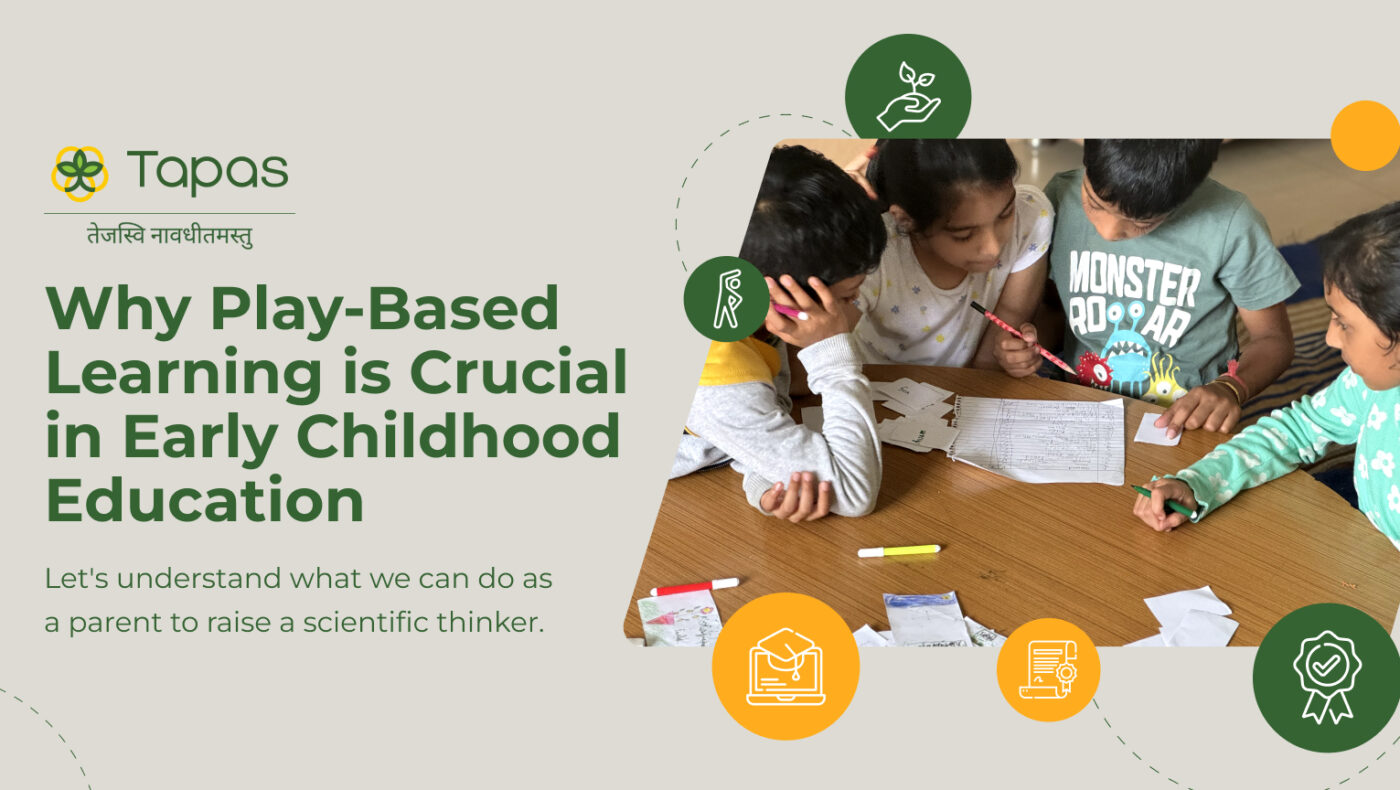Hello, Curious Minds!
I’m Ms. Preethi Vickram, founder of Tapas Progressive School, where we prioritise innovative learning.
Today, let’s explore why a fluid and engaging play-based learning setting is pivotal in early childhood education.
I’ll also take you on a nostalgic journey back to our school days and the beloved grandmother stories that were the highlight of our day and served as natural sleeping pills, illustrating how these timeless tales can inspire our approach to education today.
Navigating the Day with Fewer Transitions
I’ve often observed that traditional educational models compartmentalise learning into segmented, rigid schedules.
However, as we navigate the intricacies of child development, it’s clear that young children benefit most from an environment where learning is fluid and play-based—an approach we embrace wholeheartedly at Tapas.
Have you ever paused to think about how many transitions a child navigates daily?
They arrive, they visit the bathroom, and they settle down to eat—each of these steps is a potential interruption to their learning flow.
Adding even more transitions to their day means that instead of truly learning, children end up merely memorizing and ticking boxes off a schedule.
They’re constantly being packed up and shuffled from one activity to another, which can lead to a fragmented understanding and stifle genuine curiosity and engagement.
In many traditional educational settings, a child’s day is strictly divided into fixed periods, each set aside for a specific activity.
At Tapas, we strive to minimize these disruptions, fostering an environment that respects the natural rhythms of young learners.
We believe that children, especially in their early years, should not be shuffled through a series of segmented periods like the 1st, 2nd, and 3rd periods.
They flourish best in settings where learning progresses fluidly from one activity to another without sudden interruptions.
The Magic of Engaging Stories: Learning Beyond the Basics
Let’s dive into how you can use storytelling to raise thoughtful and inquisitive young thinkers.
Remember the stories our grandmothers used to tell us?
Some might not have made much sense, and they often changed with each telling, but they were wildly creative and engaging—quite unlike the often dry, factual stories children are sometimes subjected to in more conventional educational settings.
For example, rather than a vibrant tale filled with adventure and whimsy, children might be asked to sit through a story that methodically explains how bees make honey or the step-by-step process of a caterpillar turning into a butterfly.
These stories, while educational, lack the narrative flair that sparks curiosity and imagination, turning potentially fascinating subjects into a lecture that challenges even the most attentive listener to remain engaged.
Storytelling is a core part of our curriculum, not just for the sake of amusement but as a critical learning tool.
At Tapas, stories aren’t just read; they’re brought to life. We encourage our educators to make each storytelling session interactive and engaging.
This method respects their developmental stage and fosters engagement, making every storytelling session a lively discussion rather than a monologue.
Cultivating Young Thinkers: Essential Tips for Parents
To effectively cultivate the minds of young thinkers, it’s essential for parents to foster an environment of curiosity and exploration outside of formal educational settings. Here are several key strategies to encourage a deep, enduring interest in learning and discovery among children:
1. Explore Nature Together: Regularly venture outdoors with your child to investigate the natural world. Whether observing insects on a plant or discussing the reasons behind seasonal changes, each moment spent in nature can ignite a child’s scientific curiosity.
2. Engage in Home Experiments: Conduct simple experiments at home that demonstrate scientific principles while encouraging active participation. These activities should invite children to predict outcomes, observe changes, and discuss their observations. For example, creating a volcano with vinegar and baking soda or planting seeds to observe plant growth can provide practical learning experiences.
3. Encourage Inquisitive Conversations: Foster your child’s critical thinking skills by asking open-ended questions that require more than yes-or-no answers. Questions like “What do you think will happen if…?” or “Why do you think that occurs?” are great for helping children learn to formulate hypotheses and approach problems scientifically.
4. Utilize Storytelling: Make complex scientific concepts relatable and exciting through storytelling. Select books that intertwine factual information with engaging plots or invent your own tales that include scientific elements. Stories about a curious rabbit investigating the lunar cycle or a young inventor who uses simple machines to solve everyday problems can turn abstract concepts into tangible, memorable lessons.
By integrating these strategies into daily interactions, parents can significantly enhance their children’s capacity to think creatively and critically, laying a strong foundation for lifelong learning and curiosity.
Connect with us:
We’re on a wonderful journey of exploration, and every day is an opportunity to learn something new—not just for our children, but for us as educators and parents. Join us as we continue to explore, learn, and grow together.
Facebook page link- https://www.facebook.com/tapaseducation
Instagram profile link- https://www.instagram.com/tapaseducation/
Email- [email protected]

